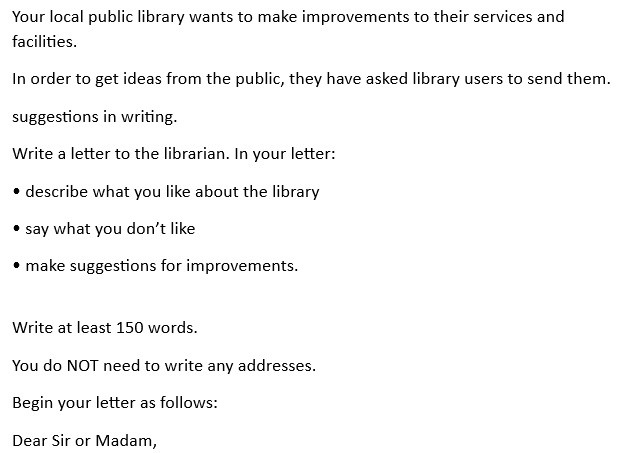
IELTS (International English Language Testing System) is an English language proficiency test which is part of one’s immigration process. This test demonstrates the language abilities of an individual who plans to move to an English- speaking country, like Canada. The test has 4 sections – Listening, Reading, Writing, and Speaking. This article discusses some techniques that you could use to effectively handle the writing section of IELTS.
The section comprises two tasks such as letter writing for 20 minutes with a word limit of 150 words and essay writing for 40 minutes with a word limit of 250 words. The time allotted to complete both tasks is 60 minutes. The module focuses on 4 criteria like achievement, coherence and cohesion, lexical resource, and grammatical accuracy.
Understand the format: time plays a key role in the writing test, and you are responsible for scheduling your own time for each task. Keep in mind the stipulated time to complete both tasks is 60 minutes.
Understand Task 1 requirements: you will be asked to write a formal, semi-formal, or informal letter in this task. You will be presented with a situation and asked to write a letter either seeking information or responding to someone asking you for something. The task needs to be completed in 20 minutes with a minimum word count of 150 words. Following are some types of letters you could anticipate:
Here is an example that was asked in a recent IELTS test:

Apprehend the assessment criteria for Task 1: it is important to understand the point of evaluation by the examiner. You are assessed on your response to the work, the way you structured your thoughts, and the proper utilization of grammar and vocabulary. Check out the four criteria for assessment:
Reflect on the task before you start to write: it is recommended to spend at least 2-3 minutes planning what to write. Avoid the temptation to start the right way.
Understanding Task 2 requirements: This task requires you to write an essay about a given topic within 40 minutes with a minimum word count of 250 words. You will have to write an essay based on an argument, a point of view, or a question. Examples of questions are: In what ways do you agree? What are the pros or cons of…? Who do you think should be in control of…? What are the challenges of…? What are some remedies to…?
Here is an example that was asked in a recent IELTS test:

Create an essay plan: isolate the topic from the task to make sure you grasp it. Follow the same pattern as you did in task 1 and take 2-3 minutes to contemplate and plan your essay.
Verify what you wrote: if you have enough time, take a moment or two to check your writing for grammatical errors and any other inaccuracies you might have a tendency to make since you make not have sufficient time to redo the letter or essay.
Study sample papers: when you study sample answers, make note of how the writing is arranged and the phrases and vocabulary utilized in order to integrate them into your writing. This is an excellent approach to learn about the work you need accomplish to achieve your desired band score.
Thorough Practice: all the modules of IELTS require thorough practice. Therefore, share your writing with a trainer or a buddy who is also prepping for the test so that you can both offer feedback based on the evaluation criteria.
All the best!